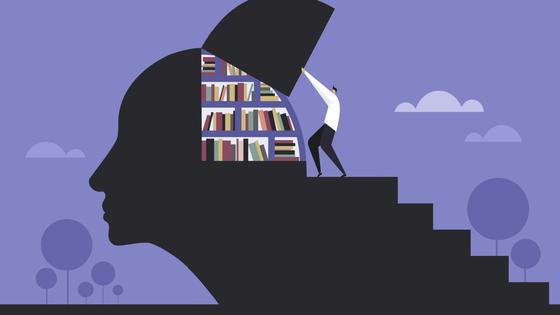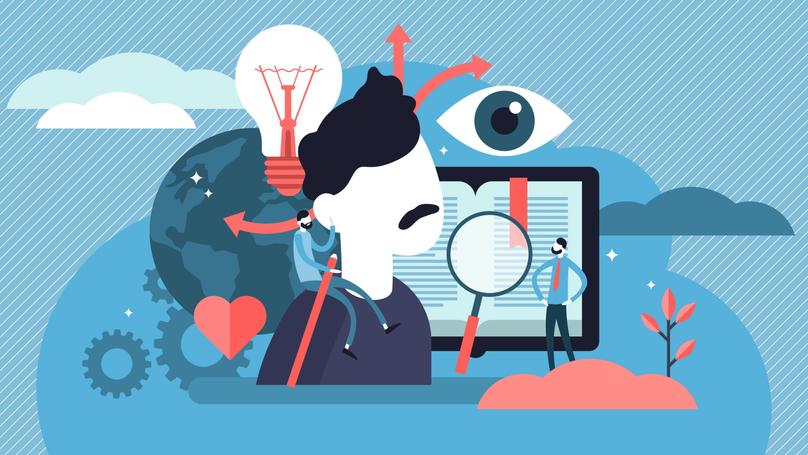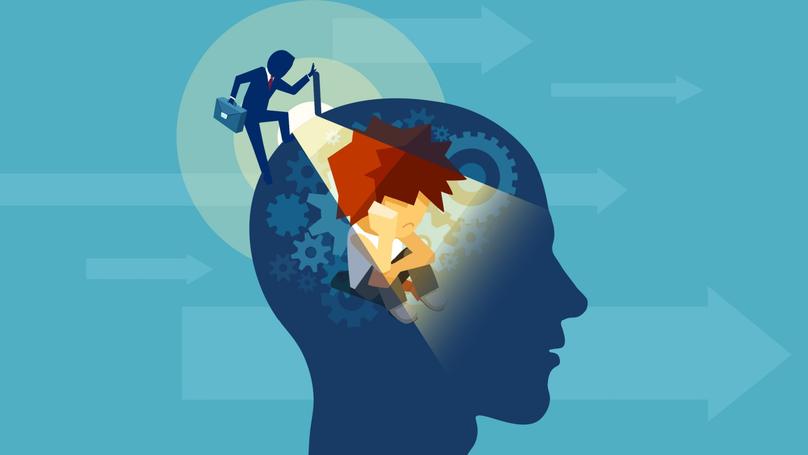Remember Everything, or How to Stop Forgetting
Every student dreams of quickly and painlessly memorizing dates, formulas, theorems, and other information necessary for studying.

Even if you have already graduated, you will probably not refuse to learn a foreign language quickly or at least never forget what you wanted to buy in the shop. Let's learn more about how to absorb information and remember everything instantly.
How our Memory Works and What it is Like

Understanding how our memory works is worth it before proceeding to the most effective memorization techniques. The body can perceive, store, and use information about past experiences, events, and experiences. Memory is the basis and foundation of human identity, as it plays a crucial role in development, learning, and adaptation to the world around us.
The mechanism of remembering works according to the following scheme:
-
Encoding is when our brain receives information about the surrounding world through the senses and transforms it into a form that a person can remember.
-
Storage is archiving the received information for a short or long period.
-
Retrieval, or directly the process of recall, when necessary to revisit the information.
Of course, this is a very simplified and concise model, but it is sufficient to understand how the mechanism of remembering is generally organized. After all, initially, scientists considered memory to be a single system but later concluded that it contains many dependent subsystems. Cognitive psychologists and one of the first memory researchers, Richard Atkinson and Richard Shiffrin, distinguished three main components or varieties of memory:
-
Sensory memory.
-
Short-term or working memory.
-
Long-term memory.
The first of these, sensory memory, functions through the senses. For example, it allows us to feel warmth or cold and hear or perceive silence. Our ears, eyes, nose, tongue, and even skin are constant information providers about what is happening around us. Each of these senses has a corresponding memory channel: tactile, gustatory, olfactory, visual or iconic, and auditory or echoic. In most cases, the type of perception determines the success of remembering a particular piece of information. Therefore, people are divided into audio, visuals, and kinesthetics.
Short-term memory is also called operational or working memory. Its capacity is limited, and you store received information for a minute. In addition, not all the information surrounding us can get to this stage and go to long-term storage.
Scientists consider long-term or long-term memory to be the final or final in the memorization system. It has almost unlimited capacity and can contain data about everything: learned knowledge and skills, life experience, and events. Thus, long-term memory helps us throughout our lives to do everyday things, such as talking, walking, doing work, and so on. To retrieve the memory, knowledge, or experience we need consciously, the mechanism of one of the types of long-term memory - explicit memory - is triggered. If the memory appeared unexpectedly and unconsciously, it means that implicit or implicit memory has made itself known.
It is also customary to distinguish separate subtypes of memory. Among them:
-
Semantic memory, which holds the basic information about the world and our life experiences in the head, allows us to accumulate knowledge, use language, interact with others, and analyze what is happening.
-
Procedural memory, also known as motor or "bodily" memory, facilitates and enables us to perform specific actions automatically.
-
Prospective memory allows us to remember plans and realize what we have planned.
-
Episodic memory is triggered when a person mentally transfers to a particular past event and nostalgically recalls a specific period.
-
Collective memory is expressed in experiences formed over several centuries and generations and is most often associated with traumatic events such as wars, repressions, cataclysms, and other tragedies.
Scientists believe that memory is closely related to emotions because the best-remembered events cause us joy, laughter, or, conversely, offense, disappointment, and anger, where the peculiarities of perception and reaction to what is happening influence whether our brain will remember or reject certain information.
Why We Forget
In fact, most of the information we do not remember is because, in a modern and rapidly developing society, our brains cannot keep up with the masses of data that come to us. The scientific community has not yet formed a consensus on the capacity of human memory, but that has its limits, individual for everyone.
Moreover, many memories over time lose their relevance and, accordingly, erased or, roughly speaking, forgotten. Technically, this happens if some events are not retrieved from memory for a long time. Then, the brain considers them no longer necessary and eliminates them. Besides, not all the information that surrounds us is crucial. Therefore, human memory is selective. It retains what can be valuable to us, with which certain feelings, emotions, and sensations are associated.
Do not forget that forgetfulness can be caused by hormonal or age-related changes. After all, memory tends to lose flexibility, for example, with age or during pregnancy. It is also influenced by the violation of the regime, lack of a healthy lifestyle, external factors such as lack of sleep and stress, and taking certain medications, antidepressants, sedatives, and psychoactive substances. However, more severe memory impairments may indicate health problems, depression, and other disorders. In such a case, you should consult a doctor. However, it is worth using memory practices if you realize that you lack concentration and your memory needs improvement. Using them in preparation for exams, speeches, and reports is especially relevant.
The Best Methods for Memorising Information

There are a vast number of techniques of memorization that help to assimilate information better. However, the most common and effective methods include the following:
-
Interval Repetition
This technique says: "We need to repeat the material when we have almost had time to forget it, but not yet to the end."
The method is based on the discovery of German psychologist Hermann Ebbinghaus, who found that during the first hour, we forget more than 50% of what we have learned, and after ten hours, only 35% of it remains. After a few days, the material we will still remember is about 15-20%. Memory researcher Ebbinghaus called this the forgetting curve.
This property of memory is the basis for the technique of interval repetition, which assumes that you should repeat the learned material at a particular time: first immediately after finishing reading, then twenty minutes after the first repetition, eight hours after the second, and twenty-four hours after the third. This way, you can learn the necessary information in just a few days. But if you have several months, the scheme changes a bit.
- Immediately repeat after you finish reading,
- Twenty to Thirty minutes after the first repetition,
- One day after the second,
- Two to three weeks after the third,
- Two to three months after the fourth repetition.
Additionally, you can create an individual schedule of repetitions based on personal features of thinking and memory. To do this, you can use special programs. For example, Anki is designed to facilitate the memorization of words, expressions, and any other information with the help of a set of cards. SuperMemo, Mnemosyne, and EasyWords applications for learning foreign words are no less popular. You can use any program to suit your needs and individual characteristics.
-
Locus Method
It is also commonly referred to as the memory palace or mental walk. The method probably originated in ancient Rome when orators were forced to learn their hours-long speeches by heart. The essence of the technique is to visualize facts or any other information that needs to be remembered and link it to known locations, places, or objects.
To begin, focus on a place where you are, such as home. This space will become your memory palace. Mentally walk through it, remember the most memorable pieces of decor or furniture, stop at them, take a good look at them, and try to commit them to memory. Next, create a route between these objects and think of associations to them one by one. These can be not only words or expressions but also dates, formulas, names of people, and necessary purchases. So, the information you must memorize will now have a specific "locus," Latin for "place." For example, a lamp in the living room is one locus, a flower on the kitchen windowsill is another, an aquarium in the living room is a third, and so on. Try to fix it in your mind; remember the associated data the next time you pass by this object.
-
Chunking Method or Fragmenting Information
This method combines disparate data that need to be remembered into one group and brings them to a common form. In most cases, this method is used to remember information that represents numbers, such as phone numbers or bank accounts. The chunking approach is about writing down and subsequently memorizing this data. Think about why phone numbers are usually written with a dash. In fact, this is how sets of numbers are better perceived and learned.
The fundamental principle underlying the chunking method is the combination of items based on semantic coding when items are grouped according to a specific pattern, principle, or characteristic. For example, to memorize a list of products to buy in a shop, one can compose it alphabetically or divide the items according to the class of goods. Thus, chunking involves breaking any data into small, independent blocks instead of presenting a continuous and disjointed flow of information.
-
Storytelling
Numerous studies by experts in human thinking have proven that competent and engaging storytelling promotes the production of the hormone oxytocin, which enhances empathy and activates the brain.
Stories told through storytelling schemes should fulfill those qualities and characteristics that make listeners or readers involuntarily remember them. These are, for example, vivid images, detailed plots, and exciting and unexpected events. This method is actively used in advertising and marketing to attract and retain the audience's attention. The essence of this technique for everyday memorization of information is the need to create around specific names, dates, formulas, and other information, such as small stories, plot lines, characters, and vicissitudes occurring with them. It does not mean you need to write a bulky script. It is enough to create an amusing story in just a couple of sentences. The accuracy and plausibility of the narrative in this case are not necessary. The main thing is to add memorable information to your story organically. However, suppose you are thus preparing for an oral exam. In that case, it is essential to distinguish between a fictional story and the facts underlying it during the answer.
-
Mnemotechnics
Mnemonics is a whole set of special techniques and methods that simplify the process of memorization. Researchers believe information is learned better and faster if connected with other information. This connection can be very different, but most often - associative. To form and consolidate links between various data, use different memory channels: visual, auditory, tactile, and olfactory. Another type of mnemotechnics is artificially creating emotions, thanks to which events or various, even the most boring statistical data, are easily remembered. Let's examine in detail a few of the most effective mnemotechnics.
-
Cicero's Method
It creates a chain of vivid associations or images associated with certain information. This way, when you recall, the images will first pop up in your memory, pushing you to the information you need. It is best to use Cicero's method to memorize large amounts of data - lectures, reports, and speeches.
-
Method of Pictograms
According to this method, the text is in pictograms-small pictures that reflect the meaning of what you need to remember. The technique works most effectively when memorizing poems, as they are filled with images and descriptions that are easy to represent in pictures.
-
Using Rhymes
Rhyming lines are much easier and faster to memorize than prose text. So, if you need to learn a particular rule or theorem, try composing a few lines to it in rhyme. If you want, you can rhyme almost any information you need to be memorized. Besides, most of the material is learned while composing. This method is especially relevant when learning foreign languages.
-
Making up Abbreviations
Conjuring up abbreviations is another way to encode information using visual and auditory images and abbreviations. To do this, you need to make a list of words that you need to memorize. For example, these could be the planets of the solar system. Next, think of any coherent sentence, each word beginning with the planet's first letter. In this way, you can encode anything.
How to Maintain Memory

To develop memory and easily assimilate new information, it is not enough to use mnemotechnics and other fast memorization methods only during sessions, exams, or preparation for other reports and speeches. We have compiled the top five tips for keeping your memory and thinking active.
Tip 1. Get enough sleep! Sleep is directly related to cognitive ability, thinking, and performance. Our brain simply needs rest because otherwise, it will not be able to function at 100%. For example, scientists have proven that if you have not slept well for just one night, and even more so if you have not slept well regularly, your ability to remember information will decrease dramatically.
Tip 2. Do sports and lead a healthy lifestyle. It's no secret that physical exercise improves memory function. It is unnecessary to spend days in the gym; you can do morning exercises or at least basic exercises to cheer yourself up and distract yourself from your main activity. It is imperative to devote ten to twenty minutes of exercise before preparing for an exam to improve concentration and remember essential dates, formulas, and other precise data.
Tip 3. Don't forget about mental exercise as well. Exercise your brain regularly. Various puzzles, quizzes, crosswords, or other similar activities that engage the thought processes are best suited for this purpose. Any rebuses and tasks increase the speed of information processing and thinking, improving memory and brain plasticity.
Lectera’s Online Courses by topic
Tip 4. Write by hand and read aloud more often. Writing helps you remember information better and concentrate solely on the material because it is challenging to think about something distracting while writing. As a result, your comprehension of what you are writing down increases. Reading aloud also contributes to memory development, as it simultaneously engages two channels of perception: visual and auditory. It additionally stimulates brain activity.
Tip 5. Develop mindfulness. A well-developed awareness will allow you to concentrate on the material without problems and competently apply all the above methods and practices. Moreover, scientists have confirmed that this practice helps to regulate stress and cope with sleep disorders, reducing anxiety and restlessness. You can learn more about mindfulness and how to develop mindfulness here.
The primary advantage of each practice described is that you can do them at home. They are free, easy to understand, and require no additional training or special equipment. With their help, you can develop your memory and stimulate your creative thinking, imagination, and cognitive abilities. So you should not neglect mnemotechnics and other methods; even if you have no problems memorizing information, their use will be an exciting and valuable experience!
Share this with your friends via:
Latest News

A significant stage in the development of the alternative education system has begun in West Northamptonshire in the UK: the County Council is actively calling on parents, guardians, and trustees to participate in shaping the future of this key area.

Outwoods Primary School in Atherstone, Warwickshire, having experienced deep sadness after the loss of their famous cat, Silla, has found solace in a new pet – a Maine Coon named Aloysius O’Hara.

In modern universities, artificial intelligence, and in particular ChatGPT, is rapidly transforming from a controversial tool into a full-fledged student assistant.

An innovative educational project is gaining momentum in UK primary schools, aiming to change attitudes towards video games.

The Massachusetts Institute of Technology (MIT) presents MIT Learn – a revolutionary online platform that opens a “new front door” to access university knowledge and resources.












 Test. Check Your Social Media Dependency Level!
Test. Check Your Social Media Dependency Level!
 Test: What Business is Right For You?
Test: What Business is Right For You?
 “I’m Here for the Long Haul”: When Loyalty to a Company Becomes Toxic
“I’m Here for the Long Haul”: When Loyalty to a Company Becomes Toxic
 Test: How Prone Are You to Abusive Behavior as a Manager?
Test: How Prone Are You to Abusive Behavior as a Manager?
 Test. What superpower would you possess if you were a superhero?
Test. What superpower would you possess if you were a superhero?
 Test. What Should You Let Go of Before Winter Ends?
Test. What Should You Let Go of Before Winter Ends?
